Photographs: Uttam Ghosh/Rediff.com M R Venkatesh
Part I: How corruption corrodes Brand India
The impact of the loot since Independence on the national development is under-researched. The outcome of poor social sector performance and failing infrastructure is both the cause and the consequence of this loot.
That effectively brings in the question of governance in India.
Corruption, it is often said, flourishes in weak states. Therefore, those who are the beneficiaries of corruption, seek to ensure that the Indian state remains weak.
That means our assault on poverty is superficial and symbolic as the State is unable to deliver either on infrastructure or on social sector indices.
Further, poverty fosters crime, and crime has a demonstrable nexus with terrorism. The symbiotic link to all these is corruption -- one that unites poverty, crime and terrorism.
. . .
Why politicians don't want to fight corruption
Strangely, the nation seems to be in a state of stupor or remains a silent witness to this continued mess caused by corruption.
The plausible reason for the same is pretty obvious -- the nation is oblivious of the ill-effects of corruption and its symbiotic link to poverty, crime and terrorism.
Consequently, the 'progress' of the nation has remained on the periphery. Given the extent to which corruption, coupled with this gargantuan plunder, has gnawed at the vitals of the nation, to many Indians, independence means very little.
Some well-meaning Indians have gone to the extent of suspecting that corruption and not anything else will dynamite the unity and integrity of the country in the near future.
. . .
Why politicians don't want to fight corruption
Photographs: Reuters
Broadly, three factors have contributed to this mess. These are:
- The lack of decisive political leadership.
- Systemic flaws in our governance
- Loot of capital from India (technically termed as capital flight).
Or is it to be sequenced the other way around? Once flight of capital happened on a regular basis, vested interests began to feed on the system and worked their way to ensure a weak leadership and a pliable administration. Definitely, one cannot be original in this debate.
It is corruption that makes India poor and our poverty feeds on corruption. It is corruption that is ensuring the continued loot of billions from the poor in India and, thus, holding us back from using our own precious capital required for our development.
It is corruption that is preventing better governance in India. It is corruption that feeds on petty crime which in turn leads to terrorism.
In short, it is a vicious cycle that has a debilitating impact on the development of a nation as well as a systemic impact on its economy and national security. And unless we break this cycle, it is impossible to win our war on poverty.
. . .
Why politicians don't want to fight corruption
Photographs: Reuters
Debilitating impact of capital flight
The debilitating impact of capital flight on a developing country can never be understated. To develop, obviously, a country requires capital. This is fundamental economics.
A country like India requires a huge quantum of capital, especially as her developmental needs are simply gigantic.
Yet, for the past 60 years after our independence, we have turned a blind eye to the idea of capital flight from India.
The time has come to recognise the debilitating impact of capital flight from India, prevent any further flight and take the necessary steps to bring back the same back into India.
This flight of capital over the years has prevented India from attaining a developed country status and ensured that we have remained a 'developing' one for the past 60-odd years and could continue to be so for a reasonably long time in the future.
. . .
Why politicians don't want to fight corruption
It has left our millions mired in poverty, ignorance and disease. It is the cause of our poor infrastructure, both rural and urban.
All these have resulted in India being repeatedly hyphenated with sub-Saharan countries or South Asian countries in several human development indices.
It is to be noted that capital flight has impacted several developing countries for the past few decades. But that is no solace to a country like India whose real performance, has consistently fallen short of her potential.
Nevertheless, it is interesting to note the global perspective before we try and appreciate the Indian context.
In a speech delivered by Raymond W. Baker in June 2007, titled 'The ugliest chapter in global economic affairs since slavery', Baker traces the development of the global structure since the 1960s that facilitated the movement of illicit capital away from the developing countries.
. . .
Why politicians don't want to fight corruption
Photographs: Uttam Ghosh/Rediff.com
Baker captures all these best when he states, "Many political leaders and wealthy business people wanted to take money out of these newly independent countries, a desire which was well serviced by Western financial institutions."
And that applies to India in equal measure. Naturally, capital flight has emerged as the single largest challenge to the nation.
There are several seemingly valid economic reasons for the flight of capital from India. Some of these are global and some local. Some of these are typical to India. Some of these are time honoured reasons and some relatively new to the Indian context.
Whatever it be, capital flight first was mostly because of commercial and economic compulsions of high rates of taxes and draconian exchange laws. Then, drug peddlers began using these channels.
Since the late 1990s, seeing how easy it was for drug dealers to move their profits, terrorists stepped in to move their proceeds from India. Over the years, that was further improvised and improved by newer players -- notably some of our corrupt policy framers.
. . .
Why politicians don't want to fight corruption
Photographs: Reuters
Baker puts it simply, "Drug kingpins, criminal syndicate heads, and terrorist masterminds did not invent any new ways of moving their illicit proceeds. They merely utilised the mechanisms that we had created for the purpose of moving flight capital and tax-evading money."
The point is that from now on, it becomes extremely difficult for someone to fight corruption without fighting terrorism and vice versa.
In the process, if there is action on one, there would be collateral damage on the other. It is a trade-off with dual benefits -- if we eliminate one, the other gets automatically eliminated.
To amplify further, fighting terrorism at the economic level involves investigating the sources of funding as well as establishing their channels of laundering. That could possibly lead to some inconvenient truths coming out of the closet.
What else could explain why successive governments have been soft on terrorists, especially investigating their source of funding, their ability to park money, as well as their established routes to launder money into, as well as away from India?
. . .
Why politicians don't want to fight corruption
Photographs: Reuters
In our anxiety to protect the reputation of the high and the mighty of the land, are we suppressing our collective national will to fight terrorism? How long will we continue to remain in complete denial of all these issues?
The looted wealth can transform India
Nevertheless, these amounts need to be put in the proper perspective. Let us understand the consequence of bringing even a fraction of this money back into India.
A small portion of that money would make India free from her external debts. That would allow India to borrow more from abroad, which will lower interest rates India and transform her into an economic superpower, not to speak of the reverse brain drain and its attendant benefits.
Consequent to all these developments, the value of Rupee will appreciate dramatically and a litre of petrol could be available at the fraction of current market prices.
India's entire infrastructure (estimated to be approximately $1 trillion) can be funded easily, making India economically competitive.
. . .
Why politicians don't want to fight corruption
Photographs: Reuters
Finally, India will have a meaningful assault on her poverty. The list is endless. Isn't it? And the only way of funding all these is to retrieve our own money from these tax havens.
Yet, the only apparent reason why we as a nation are hesitating and not launching an all-out war is that the high and mighty of the land are having accounts in these tax havens.
It is generally believed that several of our politicians, industrialists, celebrities, media personalities, legal luminaries and bureaucrats have accounts in these tax havens.
In short, all the pillars of the Constitution, the legislature, executive and judiciary along with the fourth, the media, seem to be severely compromised and affected by the virus of corruption.
That explains the silence of the political class, chambers of commerce, industry, media, intelligentsia, professionals and the administration on this crucial issue of our money parked in tax havens.
. . .
Why politicians don't want to fight corruption
Photographs: Reuters
It makes the battle in India completely unequal -- a war between the elite of the country (who have been party to the loot since 1947) and the victims of their loot (who still await the promised tryst with destiny since 1947).
While one can understand the suppressed glee of the looters and appreciate the stoic silence of the looted, the behaviour of the intelligentsia and the civil society on this matter is inexplicable.
In recorded history, perhaps there is no parallel of the elite and the intelligentsia of a nation having betrayed it as much as the Indian elite betrayed the cause of India, especially on this matter of corruption and the looted wealth being parked in tax havens.
And that explains why the fight against corruption is exceptionally demanding in the Indian context.
Rajaji (C Rajagopalachari), no less famously remarked that it is easier to remove foreign tyranny than the one caused by indigenous, Swadeshi self-rule. That was in the early 70s. Approximately four decades later, one cannot but fully appreciate the import of these words.
PS: Do we realise that the 9 per cent growth is increasingly becoming irrelevant?
Click MORE to read the concluding part: How corruption threatens India's security!
The author is a Chennai-based chartered accountant. He can be contacted at mrv@mrv.net.in

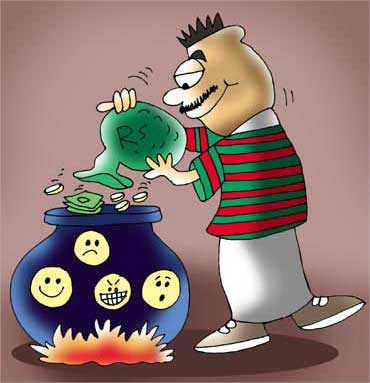
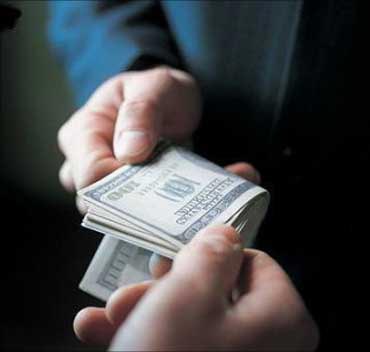
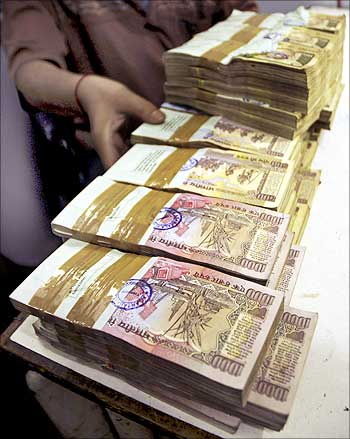

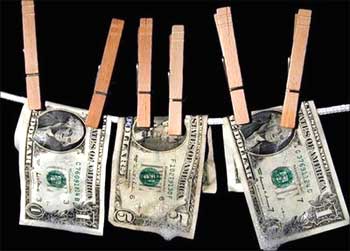

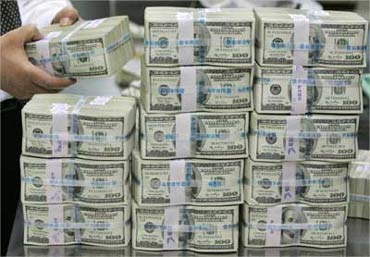
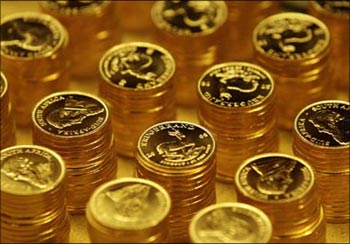

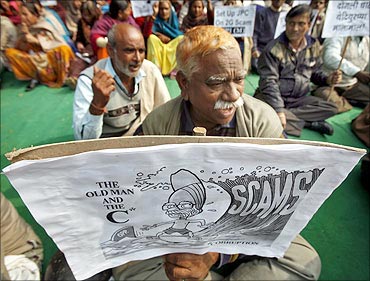
article